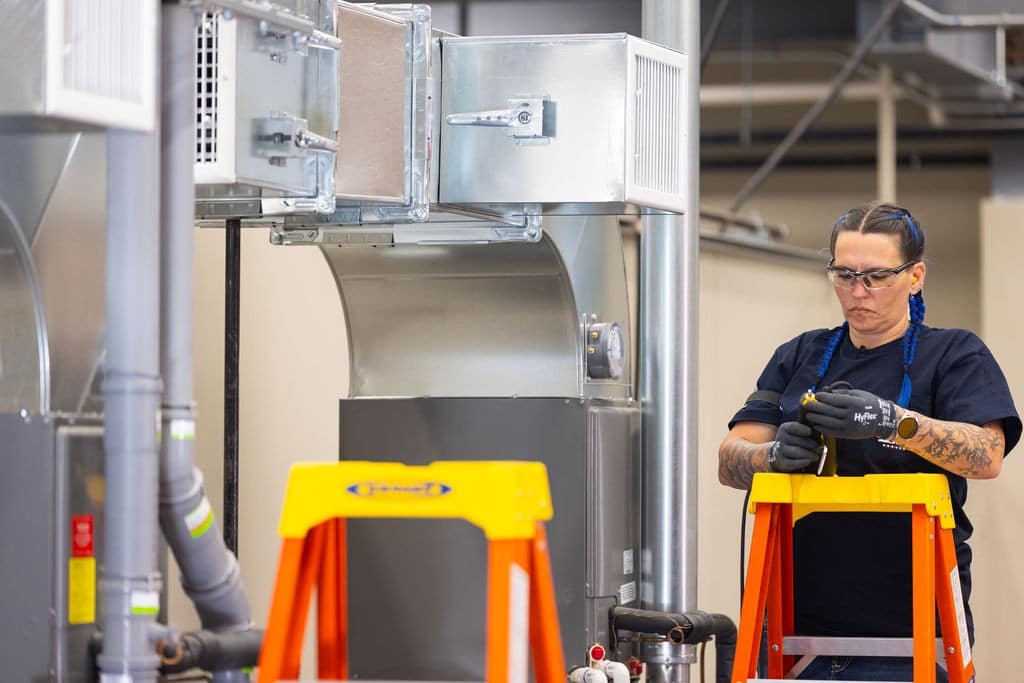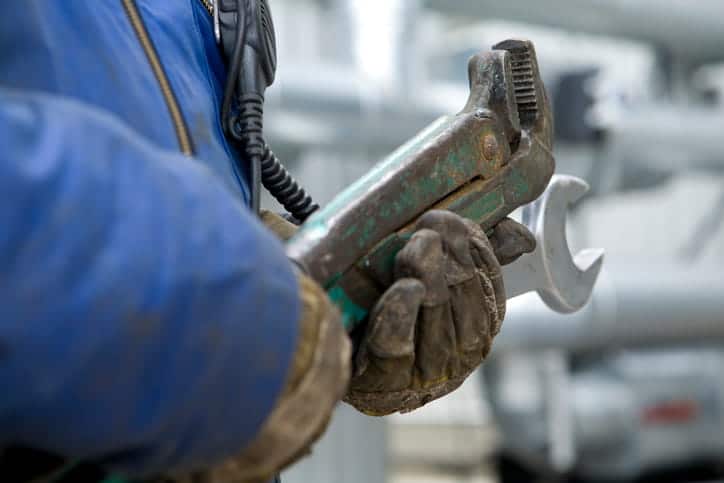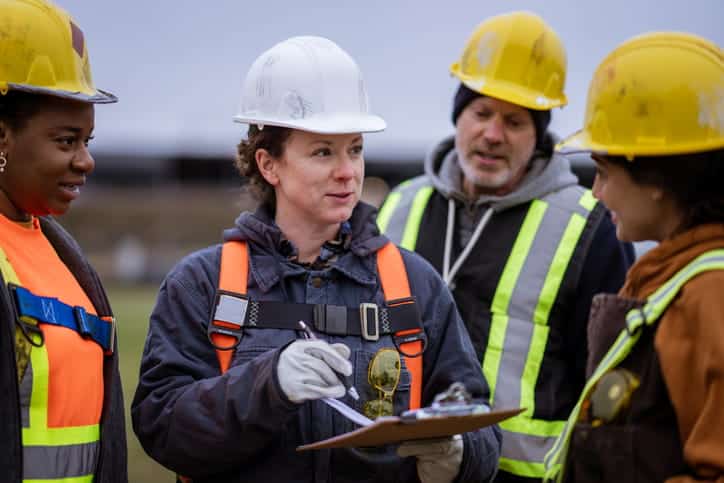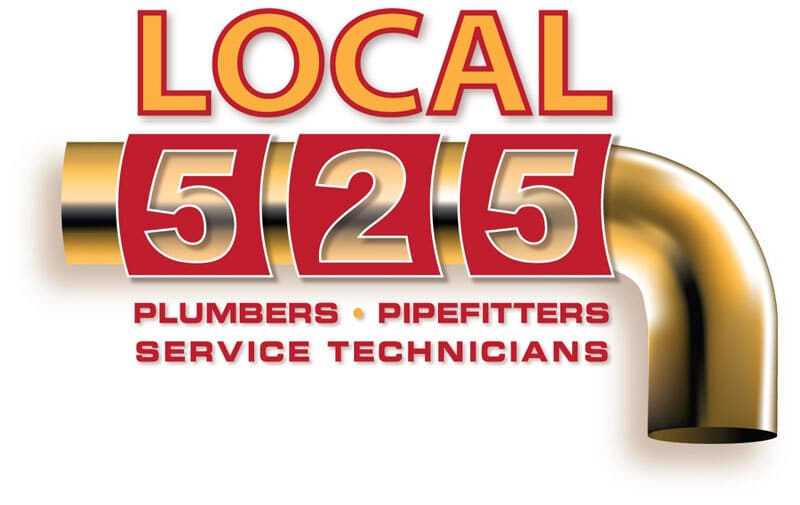Skilled vs. Unskilled Labor: Key Differences and Hiring Tips
When you are looking to hire employees to expand your business, or help you short-term on various projects, hiring the right type of employees is crucial. You can choose between skilled vs. unskilled labor, but you need to be aware of the differences between these two labor market segments. Both types of laborers do have their own benefits, depending on your specific job needs.

Need skilled labor for your next project? Hire with Local 525 today.
What Is Skilled Labor?
Skilled labor is a term used to describe people who have received specialized training in specific market and industry segments. They have knowledge and experience, and often have to complete apprenticeships, internships, or other training to be able to perform complex tasks. Additionally, there is often some type of certification or licensing for the specific field. Some common examples of skilled laborers include:
- Doctors
- Surgeons
- Plumbers
- HVAC/R Technicians
- Pipefitters
- Electricians
- Engineers
- Mechanics
Skilled laborers can also supervise others, such as journeymen, apprentices, and unskilled laborers, to ensure they complete job tasks correctly.
What Is Unskilled Labor?
Unskilled labor is a term used to describe people with minimal job skills, and no specialized training. Another term some people use in place of unskilled labor is low-wage laborers. Unskilled labor jobs often require basic skills, or ones that can easily be learned on the job and may involve repetitive tasks. However, the jobs these people perform are just as important as those performed by skilled laborers. Some common types of unskilled labor jobs include:
- Line assembly workers
- Janitors
- Cleaning services
- Packaging/shipping clerks
- Basic construction jobs
- Delivery drivers
- Fast food workers
- Landscaping
- Retail sales
- Factory workers
Skilled Labor vs. Unskilled Labor: Pros and Cons
There are pros and cons between skilled labor and unskilled labor. When you need to expand your workforce, you need to determine which type of laborer will meet your needs the best.
Skilled Labor: Pros
- Highly skilled workers
- High-quality work/craftsmanship
- Complex jobs
- Problem-solving skills
- Project planning skills
- Licensed/certified
- Usually has a higher productive level compared to unskilled laborers
Skilled Labor: Cons
- Longer training/education time
- May limit one’s career to one specific field or market segment
- Limited pool of skilled laborers
- Usually earn higher wages than unskilled laborers
Unskilled Labor: Pros
- Larger pools of workers
- Greater flexibility for temporary work that does not need specialized training
- No specialized training — can be trained fairly quickly
- Usually earns lower wages than skilled laborers
Unskilled Labor: Cons
- Can require supervision for certain jobs
- Productivity is typically lower initially until fully trained and comfortable in the position
- Limited career advancement opportunities
When Is Skilled Labor Necessary?
Skilled labor is necessary when job tasks require employees with specialized training and knowledge in a specific market or industry segment. You also need skilled laborers when you:
- Have complex tasks
- Need help designing systems and structures
- Need a person with a high level of job experience and knowledge
Additionally, skilled laborers are needed for designing, installing, repairing, replacing, and maintaining:
- Electrical systems
- Plumbing systems
- HVAC/R systems
Why Are Skilled Laborers Needed for Construction, Trades, and Specialized Industries?
Skilled laborers are necessary for several reasons. They have the experience and knowledge required to work in specialized fields and industries. Next, they are able to work unsupervised and deliver high-quality work. They also have training to ensure safety protocols are adhered to at all times.
They also have the skills to complete projects and tasks on time while also being mindful of costs to customers and clients. Furthermore, they can often complete jobs and tasks correctly the first time, further increasing customer satisfaction.
To sum up, the key reasons why you need skilled laborers in specific fields and industries are:
- Technical expertise
- Quality control
- Understanding of complex systems
- Efficient problem-solving skills
- Delivering exceptional customer service
- Quality workmanship
- Maintain safe work environments
Skilled vs. Unskilled Labor: What Is Right for Your Business?
When it comes to skilled vs. unskilled labor, you need to decide which type of laborer will meet your needs. You should start by determining what kinds of tasks and job duties the person will need to perform.
Unskilled laborers are perfect for repetitive tasks they can learn on the job, while skilled laborers are better suited for specialized tasks that require complex problem-solving and precision.
Next, decide if any specialized training, education, licensing, or certification is required. Lastly, determine what type of on-the-job or equivalent experience you desire.
Find Skilled Contractors at Hire525 Today
It is easy to find skilled contractors in Las Vegas at Hire525. We provide access to plumbers, pipefitters, HVAC/R contractors and technicians, and commercial contractors who are highly trained and experienced in their respective fields. Let us help you grow your workforce and business. We can also provide the skilled contractors you need to supplement your existing workforce to take on projects of all sizes. Hire skilled contractors in Las Vegas today.
Looking for the right workforce? We can connect you with skilled labor.
Sources:
Hayes, A. (2022). Skilled Labor: Definition, Training, vs. Unskilled.
Kagan, J. (2025). What Is Unskilled Labor and Why Is the Term Outdated?


